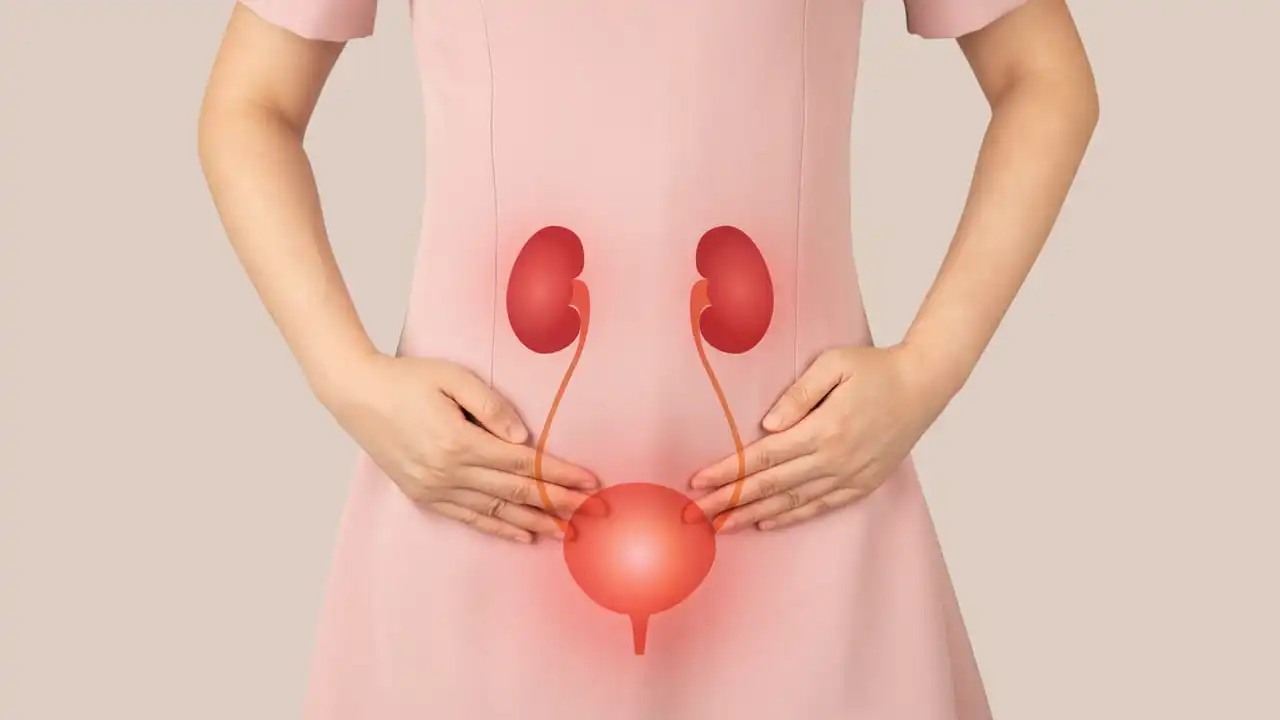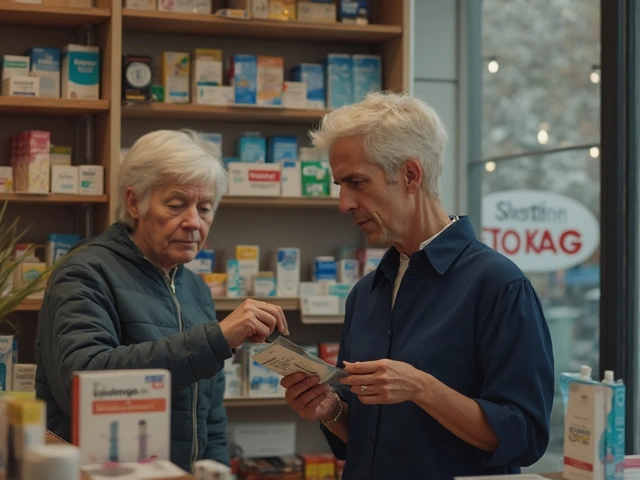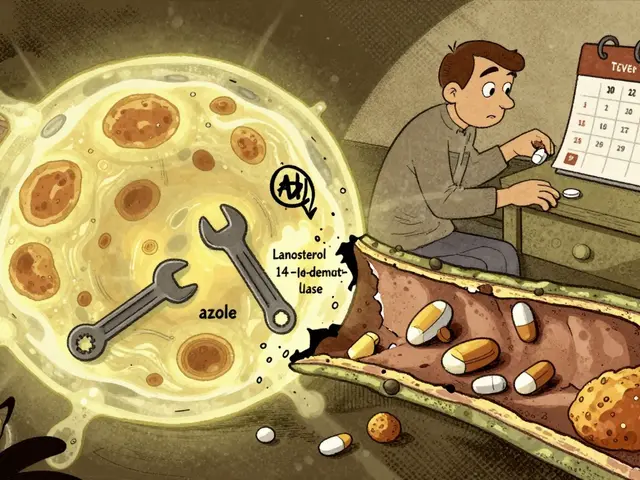Bladder infections and urinary retention: What you need to know
Understanding the Beat of Your Bladder
Have you ever thought much about your bladder? No, seriously. Despite being that diligent organ working tirelessly to rid your body of wastes, it often misses the limelight. Unless, of course, it decides one day, with flares ablaze, to join the rockstars with its rendition of "Symphony of Discomfort." But, let's be clear; here, residing in Austin, our encounters with discomfort generally consist of out-of-town barbecue enthusiasts saying we put too much pepper in the sauce. You see, in our day-to-day lives, discomfort should be as infrequent as a lukewarm Texas day.
Our bladder should hum along, removed from the spotlight but cherished for its silent commitment. It's when that engine revs a little too loudly, and discomfort becomes its tune, that we need to pay attention. Today, we'll be taking a deep dive into bladder infections and urinary retention - learning the lyrics, so to speak, to ensure our bladder stays off the charts. Let's start with bladder infections, also known as painful sound bite number one.
Plumbing Problems: The Detailed Guide to Bladder Infections
First, I want you to imagine your urinary system as a series of interconnected pipes, a labyrinth running within you, dealing with all your unspoken fluid wastes. Bladder infections are like that pesky sludge that blocks up your kitchen sink after a raucous chili night. Okay, maybe I should have picked a more appealing metaphor...
Envision the bladder being invaded by bacteria, triggering marsh-like conditions. As the bacteria multiply, they cause inflammation, discomfort and those unscheduled bathroom trips, often leaving you humming the blues. Your body retaliates with a fever as the bladder pipes struggle to flush the nasty invaders out. It's like a microscopic war being waged within your own plumbing system. Suddenly a bladder infection doesn't seem too insignificant, does it?
Me, Myself and My Urinary Retention
Now let's switch gears and chat about urinary retention for a bit. If bladder infections are the rowdy party crashers, think of urinary retention as the stubborn guest who overstays their welcome. Picture yourself at the end of a great party night, wanting to turn off the lights and hit the hay, but there's that one person who just won't leave. Trust me, I've been there! You are in full "go to bed" mode, but they're settled on your couch, taking another slice of pizza. In essence, that's urinary retention – a bladder that’s intent on keeping a little bit of urine, refusing to completely empty itself out.
The "Why?": Causes of These Unwelcome Guests
Causes of bladder infections and urinary retention? There are quite a few culprits. Now, I don't want to scare you, but the bathroom is a hotspot for bacteria. Neglecting washroom hygiene can potentially usher in bacteria right up to the bladder's doorstep, so it's crucial to keep it clean. Remember the three "W"s - Wash, Wipe, and...Wash again.
I'm a proud flier of the "Hygiene First" slogan, not just because it rhymes, but because once upon a time, in my less enlightened days, I wrestled with a nasty bladder infection. You wouldn't wish it on your worst enemy, much less your faithful plumber.
Urinary retention can stem from muscle or nerve problems. Little things, such as certain medications, overusing over-the-counter hay fever medications, or even the aftermath of a local anesthetic, can lead to a rebellious bladder. Kidney stones, enlarged prostate, constipation, and even certain tumors have also been identified as potential causes. It's like a detective novel with your bladder as the main character.
Reading the Signs: Identifying Symptoms
Bladder infections punk you with clear signs – frequent urge to pee, lower abdominal pain, cloudy or strong-smelling urine, and even fever. Discomfort is real; it becomes your unplanned companion for the day, until the cavalry (antibiotics in this case) arrives. As a fellow sufferer, trust me, once you've experienced it, you won't forget the signs.
Urinary retention, on the other hand, is a bit more elusive. The discomfort is less intense, but persistent - difficulty starting a urine stream, straining to urinate, feeling like your bladder is not completely empty, or frequent, urgent desires to pee at night are the common symptoms. It's like a stealth operative operating within your plumbing system.
Stopgate Measures: Preventing Bladder Troubles
Last but not least, let's talk prevention. Now, obviously, there are lifestyle changes that can help – staying well-hydrated, which we Texans know a thing or two about, given our love for iced sweet tea during the endless summer days. Regular bathroom breaks can keep your bladder bloat-free, but possibly, the most important of all - practicing good genital and urinary hygiene.
For urinary retention, try to avoid overusing substances that can aggravate your bladder, like caffeine, alcohol, and certain over-the-counter medications. However, if you already know you have an underlying condition that might trigger retention, its best to cut to the chase and seek medical attention. Friends, your bladder is a dedicated performer. Keep it out of the spotlight with regular checkups and awareness of your body's cues. So, go forth and respect that bladder.







14 Comments
Jefferson Vine
November 8, 2023 at 18:35
Listen up, because the pharmaco‑industrial complex doesn't want you to know that seemingly innocent bladder infections are the first domino in their massive surveillance agenda! Every time you pop an antibiotic, a tiny data point gets harvested, feeding the algorithm that decides who gets the next "experimental" probiotic. It's not just bacteria – it's a covert army of bio‑engineered microbes engineered to cling to your urinary tract until you surrender. And don't get me started on urinary retention – that stubborn guest is a smokescreen deliberately programmed into the population to keep you dependent on prescription pads. Rest assured, the truth is out there, hidden behind the white coat, and it’s up to the awakened to break the cycle.
Ben Wyatt
November 21, 2023 at 05:39
Hey folks, if you’re dealing with a bladder infection, the simplest thing you can do is drink plenty of water – aim for at least eight 8‑ounce glasses a day. Pair that with a balanced diet rich in cranberries or unsweetened cranberry juice, which can help prevent bacterial adhesion. If symptoms linger beyond two days, a short course of antibiotics prescribed by a doctor usually clears it up fast. For urinary retention, try gentle pelvic floor exercises and avoid holding urine for long stretches; your bladder will thank you. Remember, staying proactive and seeking care early keeps the “rockstar” symptoms from stealing the show.
Donna Oberg
December 3, 2023 at 16:44
Holy moly!!! You think a little “pee‑pee” ache is nothing??!!! It’s like a marching band of bacteria doing the conga line inside your bladder!!!
Every trip to the restroom becomes a dramatic intermission!!!
Don’t just ignore it – hydrate, and if the pain is still screaming louder than your favorite metal solo, call your doc!!!
Garreth Collard
December 16, 2023 at 03:49
One must contemplate the ontological significance of a malfunctioning urinary reservoir; it is not merely a physiological inconvenience but an existential affront to the body's harmonic equilibrium. When the bladder refuses to relinquish its aqueous burden, it mirrors the obstinate artist who clings to a masterpiece beyond its time. Such retention, like an over‑ripe cheese, accrues a pungent stench if left unchecked, betraying the very essence of corporeal order. Therefore, remedial measures-be they pharmacologic or behavioral-must be administered with the gravitas befitting a symphonic finale.
Daniel LaMontagne
December 28, 2023 at 14:53
Yo, totally get how annoying UTIs can be 😖. Best move? Keep the water bottle handy and sip all day, it helps flush those sneaky bugs out 🚰. If you notice cloudy pee or a burning vibe, don’t wait – hit up your doc, they’ll sort you with the right antibiotics 💊. For retention, try not to sit on the toilet too long; stand up, stretch, and give your bladder a breather 🧘♂️. Stay chill and let your bladder do its thing!
Gary Levy
January 10, 2024 at 01:58
It’s worth noting that while hydration and proper hygiene are frontline defenses, stress and lifestyle can also tip the scales toward infection or retention. Some folks find that reducing caffeine and alcohol intake makes a noticeable difference in how often they feel the urge to go. Others swear by gentle yoga poses that open the pelvic floor and improve flow. Ultimately, each body is unique, so experimenting with a few sensible habits while staying in touch with a healthcare professional is a balanced approach.
sourabh kumar
January 22, 2024 at 13:02
Just drink water and see a doctor if it hurts.
Christian Miller
February 4, 2024 at 00:07
From a systematic perspective, it is evident that the pharmaceutical industry has cultivated a reliance on antimicrobial prescriptions for commonplace urinary ailments. Such a strategy not only ensures continued market demand but also subtly normalizes periodic medical intervention, thereby perpetuating a feedback loop of dependence. Consequently, individuals should remain vigilant and prioritize non‑pharmacological preventive measures wherever feasible.
NORMAND TRUDEL-HACHÉ
February 16, 2024 at 11:12
Look, the whole fuss about bladder infections is kinda overblown. If you wash yourself right and drink enough water, most of these issues just disappear on their own. I mean, why panic over a little pee pain?
AJIT SHARMA
February 28, 2024 at 22:16
Honestly, most of the advice out there is just western fluff. In our country we’ve known for ages that staying away from spicy street food fixes the problem better than any pill. Maybe they should stop copying foreign trends.
Neber Laura
March 12, 2024 at 09:21
You think you’re clever drinking cranberry juice but it does nothing for the real cause your gut is full of bad bacteria and you keep ignoring the root issue your bladder is screaming for proper medical help now.
Karen Nirupa
March 24, 2024 at 20:26
Dear community, it is with great respect that I underscore the cultural importance of hygiene practices across diverse societies, which profoundly influence urinary health. While hydration and regular voiding are universally endorsed, individuals should also consider modest adjustments aligned with their cultural dietary customs. Engaging in open dialogue with healthcare providers, who appreciate these nuances, ensures a comprehensive strategy that honors both medical science and cultural heritage.
Quinn Comprosky
April 6, 2024 at 08:30
First, it is important to recognize that bladder infections are among the most common bacterial infections affecting adults and can occur at any age. The primary cause is usually Escherichia coli which migrates from the gastrointestinal tract into the urinary system. When the bacteria adhere to the urothelium they trigger an inflammatory response that leads to the classic symptoms of dysuria urgency and frequency. Hydration plays a pivotal role in diluting the urine and flushing out microbial contaminants before they can colonize. Studies have shown that consuming at least two liters of water per day reduces the incidence of recurrent infections in many patients. In addition to fluid intake dietary modifications such as limiting caffeine and alcohol can reduce bladder irritation. Some patients also benefit from the regular consumption of cranberry products which contain proanthocyanidins that may prevent bacterial adhesion. However, the evidence for cranberry efficacy remains mixed and should be considered adjunctive rather than primary. If symptoms persist beyond 48 hours medical evaluation is warranted to obtain a urine culture and appropriate antibiotic therapy. Short‑course antibiotics are typically effective and should be taken for the full prescribed duration to avoid resistance. In the case of urinary retention the underlying mechanisms differ and may involve neurological or obstructive factors. A common obstructive cause in males is benign prostatic hyperplasia which can be managed with alpha‑blockers or surgical interventions. Neurological causes such as diabetic neuropathy require careful glycemic control and possibly catheterization strategies. Intermittent self‑catheterization is a safe and effective method for many individuals with chronic retention. Patients should also be educated on proper voiding techniques, including scheduled voiding and double voiding to ensure complete bladder emptying. Finally, regular follow‑up with a urologist ensures that any evolving pathology is identified early and managed appropriately
Thomas Ruzzano
April 18, 2024 at 19:35
Honestly, the whole “watch your diet and drink more water” spiel sounds like a lazy excuse for pharmaceutical profit, but hey, if you enjoy spoon‑feeding yourself endless advice while your bladder throws a tantrum, be my guest.